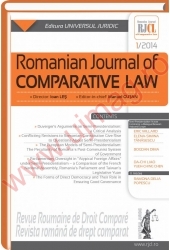The Forms of Direct Democracy and Their Role in Ensuring Good Governance
The Forms of Direct Democracy and Their Role in Ensuring Good Governance
Author(s): Ramona Delia PopescuSubject(s): Law, Constitution, Jurisprudence
Published by: Universul Juridic
Keywords: democracy; representation; participation; accountability.
Summary/Abstract: Over the last decade, democracy has become an issue for politicians, policy makers and ordinary citizens, following the rapid spread of democratization around the world, based on the principle of separation and balance of powers. The new nation states try to discover the line that describes democracy as the best available political system. On the other hand, the old democracies experience a crisis which has revealed the limits of democracy and has augmented public distrust of citizens in their political institutions. Representation is the key element of any democracy, the indirect participation of people being undertaken through competitive and regular elections. Representation is the relationship between the people or the nation and an individual or a group that stands for or acts on behalf of it. But representation cannot be the only expression of democracy, popular sovereignty implying the participation of people in making crucial decisions for the administration of public affairs. Following this approach, many constitutions stipulate that national sovereignty shall reside within the people/nation, that it shall be exercised by means of their representative bodies as well as by referendum. This article tries to grasp the value of participatory democracy and the advantages it can bring in boosting the image democracy has nowadays. Participatory democracy shall allow the citizens to be involved in conducting the public affairs at local, regional and national level by institutionalized ways, such as referendum or the citizens’ initiatives and/or by non‐institutionalized ones, as demonstrations, online petitions. Direct democracy could also amend the way in which public authorities administrate public affairs and enforce them in order to legitimate the governance on the will of the people. Consequently, direct democracy is the framework for representatives’ accountability. In some political systems, the people is demanded to intervene in order to balance the power between representatives bodies, as it happened recently in Romania in the process of suspension of the President. Within a system of multilevel governance, direct democracy may represent a solution for reducing the democracy deficit that characterized the European construction.
Journal: Revista Română de Drept Comparat
- Issue Year: 2014
- Issue No: 01
- Page Range: 126-184
- Page Count: 59
- Language: English
- Content File-PDF

